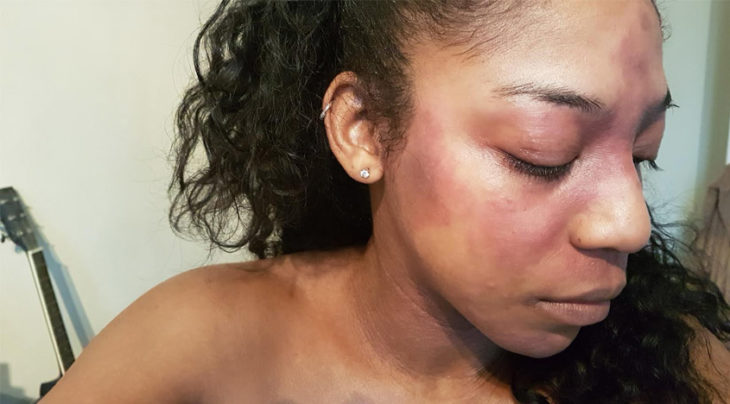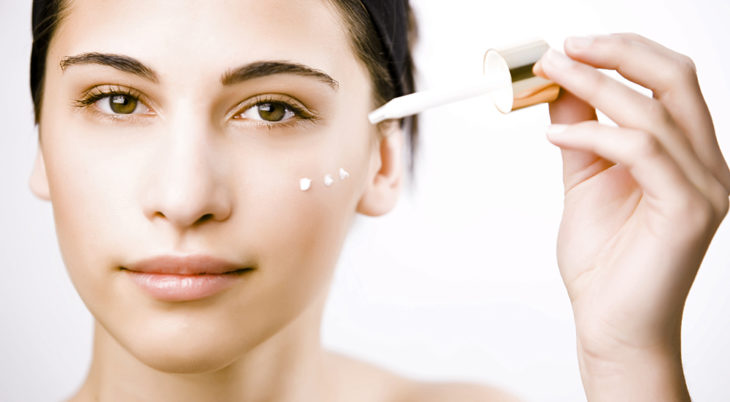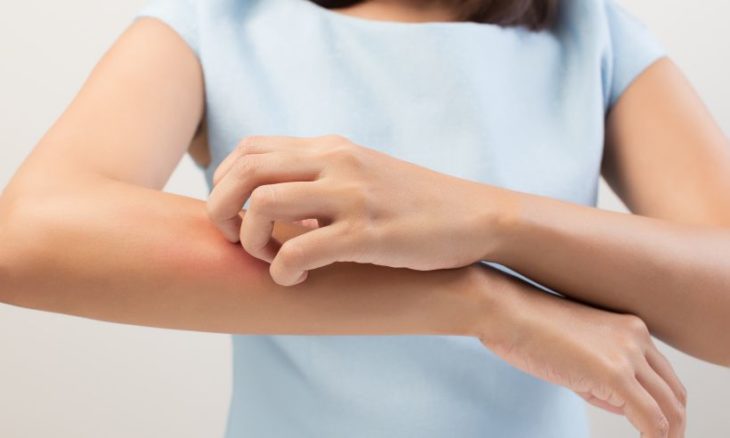Eczema, also known as atopic dermatitis, is a skin disease which can be really frustrating. You immediately learn that there is no cure for this kind of skin disease, moreover that even if you have good prevention, you can still have unexpected flare-ups to happen.
However, do not lose hope. What you can do aside from prevention is the power of knowing and understanding the skin disease. With this, it will definitely help you minimize your worst symptoms. Meaning to say, you can manage eczema well from your day-to-day activities and would help you improve your quality of life.
Contents
Understanding Eczema

Source: Get The Gloss
So, eczema is a term for a group of medical conditions wherein the skin is inflamed or irritated. Now, the most commonly known type of eczema is atopic dermatitis, which is often inherited a tendency to develop other allergic conditions like hay fever and asthma.
Eczema is almost always itchy, and sometimes, the itchiness indicates that a rash will appear. However, rashes commonly appear on the face, wrists, hands, back of the knees, or at one’s feet. Not to mention that it may also affect other areas as well.
Additionally, the affected areas usually appear very dry, scaly, and thickened. For those individuals that are fair-skinned, these areas may initially appear reddish then eventually will develop into discoloration (a brown color).
On the other hand, darker-skinned individuals are usually affected by pigmentation, which makes the affected area a little bit lighter or darker.
What Causes Eczema?

Source: FirstCry Parenting
Unfortunately, the cause of eczema is yet to be discovered, although it is linked with an individual’s overactive response by the body’s immune system to a substance that is an irritant. It is then this response which causes the symptoms of eczema.
Additionally, this skin disease is commonly found within families that have a history of asthma or allergies. Also, the defects in the skin barrier allow moisture out and germs in.
Various reasons as to why an individual will have eczema flare-ups, some of it is because of a response against substances or conditions. However, for some, coming into contact with coarse or rough material might cause the skin to be itchy.
There are also other individuals that might have eczema due to the exposure to certain household products like detergent and soap, or coming into contact with animal dander. In addition, it may also be due to temperature, such as too hot or too cold of an environment.
Lastly, there are also those other medical conditions that cause an outbreak. For instance, upper respiratory infections or colds can be triggers. Also, stress would be an additional factor to this skin disease and may cause the condition to worsen over time.
Although currently, there is no cure for this skin disease, most people effectively manage eczema through medical treatment, avoiding irritants, and other ways. Since the condition is not contagious or cannot be spread from person to person, developing and improving one’s quality of life is still possible.
Thus, read on to read more about how you can manage eczema. Additionally, you may want to visit sites like pharmaquotes.com for further knowledge about its medications.
Managing Eczema through Personal Care

Source: avoskinbeauty
Taking good care of your body is the first step in minimizing your atopic dermatitis symptoms. Since your primary prevention goal is to help your skin retain as much water as possible, then one of the best ways is to take a daily bath and the application of moisturizer on your skin.
Here are some of the additional tips:
- Setting a Timer. It is crucial that your skin is clean without drying it too much. Thus, have a short shower, just around 10 to 15 minutes.
- No to Hot Water. Turn the temperature down and consider a warm shower (since you are avoiding drying up your skin).
- Fragrance-free Bar or Cleanser. Fragrances included in some soaps/cleansers can irritate sensitive skin, so opt for those that are fragrance-free.
- Moisturize. Apply a lotion or cream to damp your skin within three minutes after bathing.
- Be Gentle. Be gentle with your skin. Only pat dry your skin with a towel instead of being rough or scrubbing it.
Managing Eczema through Household Tips

Source: Hello Magazine
Another thing you should consider is your household items since it will also affect your skin’s health. The following household tips will help you manage your eczema, which includes:
- Go Green. The harsh chemical sprays on the products that you use can aggravate atopic dermatitis even if it doesn’t come in contact with your skin. Thus, always wear cotton-lined gloves while handling household products for cleaning.
- Choose the Right Detergent. Look and use a detergent that is free of dyes and fragrance, which are substances that can irritate the skin.
- Get Rid of Dust. Dust mites are everywhere and are common allergens that lurk in homes. Thus, it is vital that you clean your surfaces often and consider removing carpeting and rugs if it is possible. Also, opt for cleaning your household fabrics at least once a week in hot water.
Takeaway
Having eczema isn’t easy. But, it is not the end of the world for you too. There are many things that you can do to cope up with having eczema, and one of the many things is what was discussed above.
In addition to the things listed above, changing your lifestyle will also help you out like staying away from the pollen, grooming your pets, and avoiding stress will also significantly help out in your managing of eczema.
